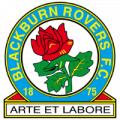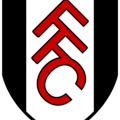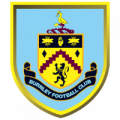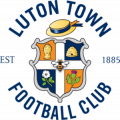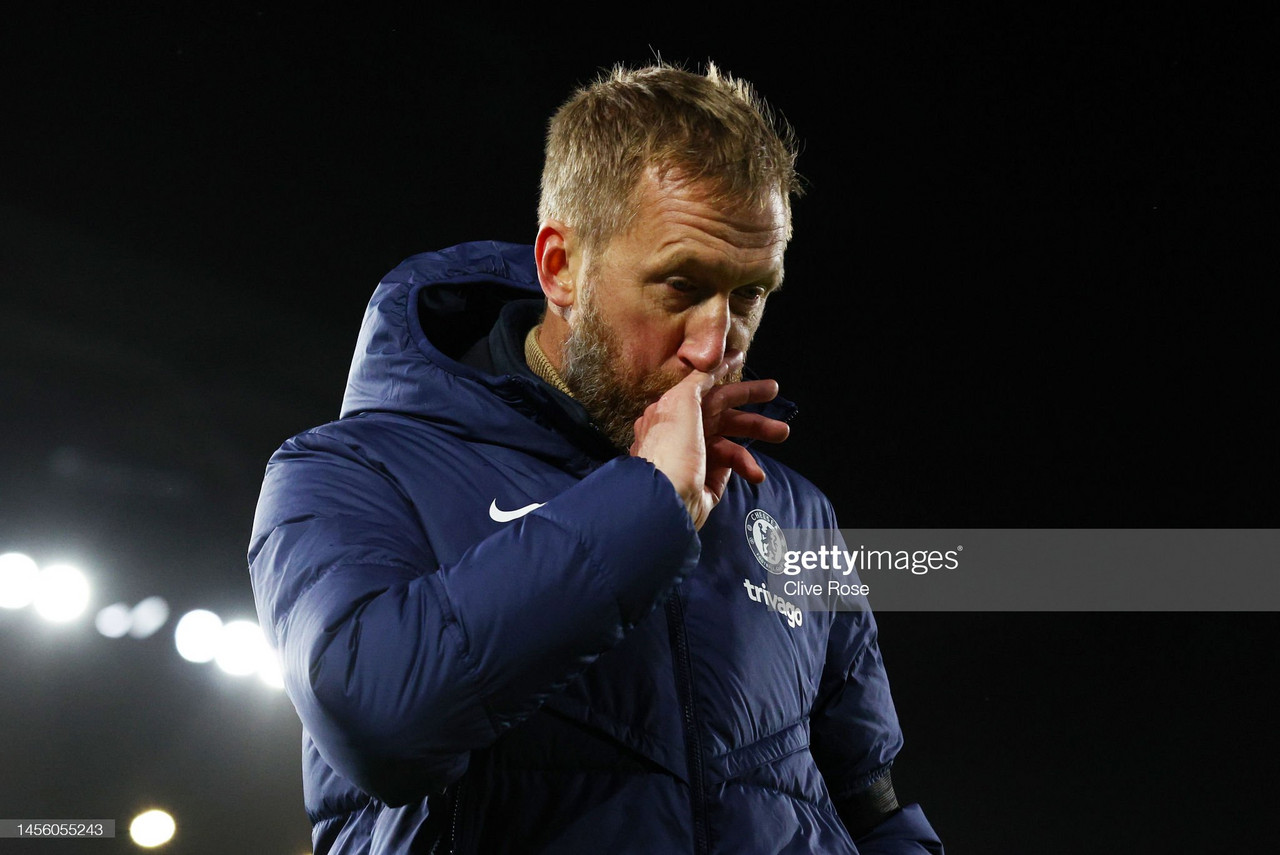It may have only been confirmed after a depressing loss to Aston Villa, but it has been over for some time for Graham Potter as Chelsea head coach.
It was over when the Blues succumbed to London rivals Tottenham Hotspur, with a tepid and uninspiring performance that not even the Englishman's greatest supporter could defend.
It was over when they were defeated at home by bottom-of-the-table and managerless Southampton, as boos rang out around Stamford Bridge at the full time whistle.
It was over when, three weeks after losing to west London neighbours Fulham, hundreds of millions of pounds later could not avert another drab performance as points were again dropped.
Perhaps, in truth, it was over from the start.
Now, Chelsea are in limbo; with no permanent manager in charge, they find themselves out of the FA Cup, with the Champions League providing little hope in that Real Madrid are their next opponents in the quarter finals.
The Premier League offers no hope either, as they wallow in mid-table, unlikely to drop further, but equally unlikely to rise higher, and they now face the prospect of a third head coach in the space of a few months.
All of which begs the question: how did it all go so wrong?
Warning signs
To answer that question, we must first go back in time. Not to when Chelsea's form dipped, or even when Graham Potter took over as manager back in September.
Instead, it is New Years' Eve in 2020 - the end of what has been an unprecedented year for almost everybody, as lockdowns disrupted people's lives and delayed normal activities indefinitely.
Graham Potter is currently speaking to the media about his Brighton and Hove Albion side's form over the previous 12 months, in which they have won only a solitary league game at home.
In fact, they have picked up just five wins out of a possible 34 in the Premier League, and Potter says the following when questioned on the troubling statistic:
"If you don't win football matches, it's harder to convince people that you are on the right path, and I can understand that.
"It's football at the highest level, with it comes pressure, with it comes challenge; challenge isn't a bad thing - just because it's the most challenging time of my career doesn't mean it's bad.
"I can't say anything other than it's not a nice statistic - there's no defence. We don't like it at all."
It is not a completely outlandish response, by any means. Frankly, there is not much more he could have said at the time that would have allayed any concerns.
The Seagulls would go on to finish in 16th place, avoiding relegation relatively comfortably in the end. And in the following campaign they improved their points tally by 10, leading to a club-record ninth place finish.
Many may look at this and wonder what exactly the problem is. Admittedly, the benefit of hindsight is of great aid here, but if there had been more investigation into Potter's previous employment, perhaps the warning signs over quite how long his project would take to come to fruition would have been seen.
Even at Swansea City, the job Potter had before joining Brighton, a similar pattern can be found. After a promising start in the 2018/19 season, a run of four wins in 14 games then followed, before a relatively successful end to the season.
Again, this in and of itself is not necessarily an issue for such clubs where success is not constantly demanded. But at Chelsea that was never going to fly.
The evidence for Potter's hiring was based on a style of football which had taken well over a year to fully implement, with the club coming close to relegation, and it does not seem an exaggeration to say that had fans been in attendance at games, he may well have been sacked by Brighton during that time.
Picking a manager to follow in the footsteps of Thomas Tuchel was never going to be an easy task, but arguably the initial hiring itself was not built upon strong enough foundations in the first place.
Had more research been done into the long runs of poor form undergone by Potter at his previous clubs, the appointment may never have even been made.
Following Tuchel
Nevertheless, on 8 September 2022, Chelsea did announce Graham Potter as their new head coach. It is fair to say that he received a mix reception at the time.
That is primarily due to the controversy surrounding the sacking of his predecessor, in the form of Tuchel. Results had not been positive under the German either, but many Chelsea supporters viewed him with almost mythical status, given his Champions League triumph with the club.
Clearly, it was not Potter's fault that the man he was taking over from had been relieved of his duties, but the contrast between the two figures could hardly have been more jarring for everyone involved.
Gone was the eccentric, wild and sometimes hot-headed Tuchel; in came the calm, placid and (usually) softly-spoken Potter.
It is not that the latter's personality is in any way inferior to the former's - some may argue that it is those exact traits Tuchel should have shown more of to save his job - but by not having them, it gave way to easy companions between the two - something not helped when things were going wrong.
When a team loses, there is a whole spectrum of responses which a manager can dish out. The issue with this particular contrast, was that the two were at almost opposite ends of said spectrum.
Where Tuchel would be furious over a refereeing mistake, Potter would accept them as part of the game, reluctant to cause a pile-on.
Where Tuchel would reel off lists of everything which had gone wrong in the game, Potter wold look for the positives, and praise players' effort.
Again, neither of these are 'better' approaches. But for fans, the first option is oftentimes more appealing, as it shows the manager is 'one of them' - they kick every ball, absorb every block, dive into every tackle, as if they were on the pitch themselves, just as fans do.
There is a fine line, of course - too much complaining and it becomes boringly repetitive - but by rarely, if ever, producing a fiery post-match interview, a sense of apathy, above all else, developed amongst supporters.
In a further contrast, the way the two men acted on the sidelines failed to help Potter's case either; the image of a head coach stood, arms crossed, looking at the ground is a much less appealing one than a head coach constantly racing around their technical area and barking instructions.
Both may end up producing the same results - by the end of Tuchel's tenure performances were certainly pretty dire - yet, with football fans being so invested in intangibles and emotions, the symbolism of a manager's actions can be far-reaching and significant.
That is what much of this comes down to, in fact: perception. There was not much fundamental difference in results between Tuchel and Potter, but the perception each gave off meant the second of the two always appeared to be lagging behind his predecessor.
Tuchel's antics on the touchline represented a Chelsea which, a little over a year ago, had won the Champions League. Potter's represented an under-performing mid-table side, seemingly devoid of any clear ideas.
However harsh, and even potentially false those descriptions may seem, it is not unreasonable to suggest that simply due to the personality Potter had, succeeding a man like Tuchel could never be a success.
Underwhelming ambition
Another common gripe which cropped up when it came to discussions about Graham Potter was his supposed lack of ambition, given the club he was in charge of.
Take another look at a section of the quotes mentioned earlier, said by Potter while he was in charge of Brighton:
"If you don't win football matches, it's harder to convince people that you are on the right path, and I can understand that."
Now, compare it to this quote, which was said by Potter just a few weeks before his dismissal:
"I know there’s nothing I can say that’s going to make the supporters - if they are against us - with us. The solution is you have to win football matches."
It felt as though, in both his ambition and his rhetoric, that Potter never quite managed to move out of the mould of 'mid-table manager' - where a mixture of wins and defeats were generally accepted without much comment.
At Chelsea, every loss is analysed laboriously for days, each individual moment being scrutinised with forensic detail. How could they have conceded that goal, not scored that chance, not won that match? At times, it is painstaking.
With that level of attention on just one loss, the magnitude of introspection is ramped up considerably with two. There is a further increase with three, and with every game that goes by without a win, the concern is amplified exponentially.
That is not the case at Brighton. Of course, they are a club with ambition and losing ad infinitum would not be acceptable to them either, but most would agree that standards are somewhat different between the two clubs.
By offering comments which focused on how the players 'gave everything', it made the poor performances even more exasperating.
After all, fans do not want to hear about the supposed effort players have put in if they have just lost - they want to hear about how frustrated the manager is not to have won the game.
And for most, players giving everything and losing games are mutually exclusive. Suggesting the two can happen at the same time conveys a lack of ambition which allowed poor performances simply to be accepted.
Many would suggest it was that attitude which led to Chelsea finding themselves out of both domestic cups in their respective first rounds, a feat they had not matched since the 1980s.
Without that, the poor league campaign was brought back into more detailed focus, as attention could not be deflected to a potential trophy which might have lifted the mood.
The one chance the Blues do still have at some silverware is, however unlikely, the Champions League, and clearly the board believe the club have more chance of progressing with a hastily-brought in replacement than the current man.
Potter's main appeal was the fact he had made a mid-table team compete with those at the top. At Chelsea, that sense of being a plucky underdog was removed, but he continued to speak and act in a similar way, which was a huge problem in the end.
Pressure provokes problems
When you become the head coach of a club like Chelsea, with two European cups to their name, there is pressure right from the start on your shoulders.
It is something that weighs down on you for every single game, with the expectations so high that overthinking and indecisiveness are not uncommon to see at many big clubs.
What does not help to assuage that pressure is spending over £200 million in the January transfer window, growing an already-inflated squad to over 30 players, with excuses regarding board backing now non-existent.
There were already some concerns with Potter heading into the New Year, but much of it could be put down to the fact the squad he was working with were not right for his style of play, and it would be fairer to judge him after he was given the opportunity to strengthen his team.
Almost inexplicably though, despite spending vast amounts of money on multiple talented players, Chelsea appeared to somehow get worse.
Players who had been touted as young stars and, in some cases, future Ballon d'Or winners, suddenly appeared worryingly average when placed in a Graham Potter team.
If that happens to one, or perhaps two players, it can be written off as an inability to adjust to the new league. When it is almost all new signings, questions will naturally be directed at the man in charge.
Again, that is not necessarily a fair criticism - attempting to gel several new players, some of whom did not speak any English, is hardly a simple task, with various priorities, including keeping team morale up, needing to be considered.
But by failing to utilise almost all of the players who the ownership had splashed out on to their full potential, the pressure eventually told on the 47-year-old.
There will still be some who argue this is the wrong decision. That Potter should have been given more time to work with new players, establish a new identity, and work for the long-term.
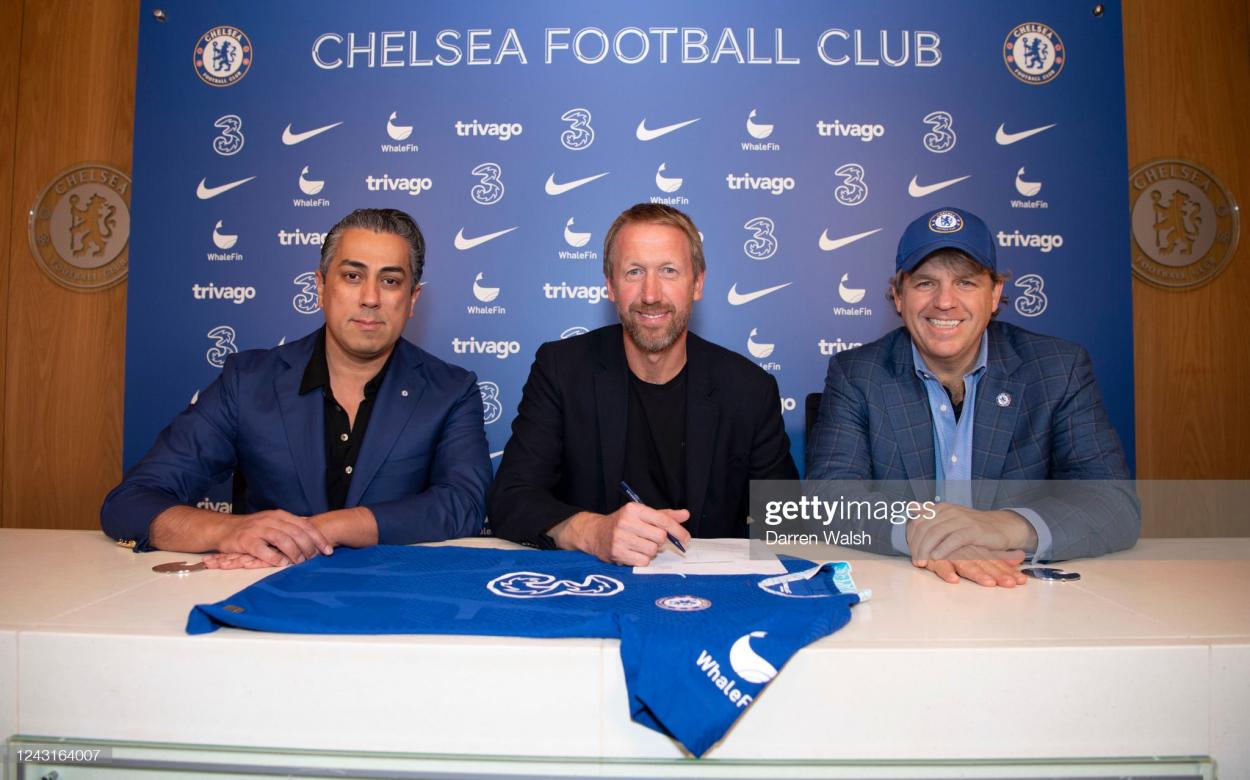
After all, when he was hired Todd Boehly said he hoped to work with him and his coaching staff 'in the coming months and years', and yet following the first rough patch he has been ousted.
What’s more, it appeared the rough patch of results that had been January and February was beginning to pass, as prior to the matchup with Everton before the international break Chelsea had won three games on the spin, including an inspired performance against Borussia Dortmund.
That, however, is an awfully generous way of looking at things. To describe the previous situation as a 'rough patch' is naïve at best, and plain untrue at worst, with results on a downward spiral from November onwards.
Even those three aforementioned results did not come easy; Leeds United could easily have snatched a point on another day, whilst the win at Leicester City was not without desperate goal line clearances.
In fact, in all of those games, Potter gave the impression he was a manager clinging onto his job for dear life - substitutions midway through the second half regularly gave the impression that the message being given out was one of ‘what we have we hold’ - an almost alien concept to Chelsea supporters.
That tactic worked against Leeds and Dortmund, for example, but luck ran out against Everton - and the sight of a late equaliser was less significant in terms of the result, but rather what it showed about the unsustainability of how Chelsea had been playing in recent weeks.
All the Aston Villa result did was cement the growing feeling amongst many that Potter’s tenure in charge was coming to a close, with any hopes of a genuine turnaround in form now extinguished.
Perhaps, in another time, with more commitment and understanding from supporters, he could well have succeeded at Chelsea, albeit after a lengthy period of adaptation.
As it was though, a combination of not getting the best out of copious new signings, having an incredibly tough act to follow in the form of Thomas Tuchel, and being perceived as bland and unstimulating in the way he conducted himself meant that it all went wrong for Graham Potter at Chelsea.
In other words, it was pressure, his predecessor, and a lack of passion that led to Potter becoming the second manager to be sacked by Todd Boehly and co. since their takeover a little over ten months ago.
You get the sense he won't be the last.

